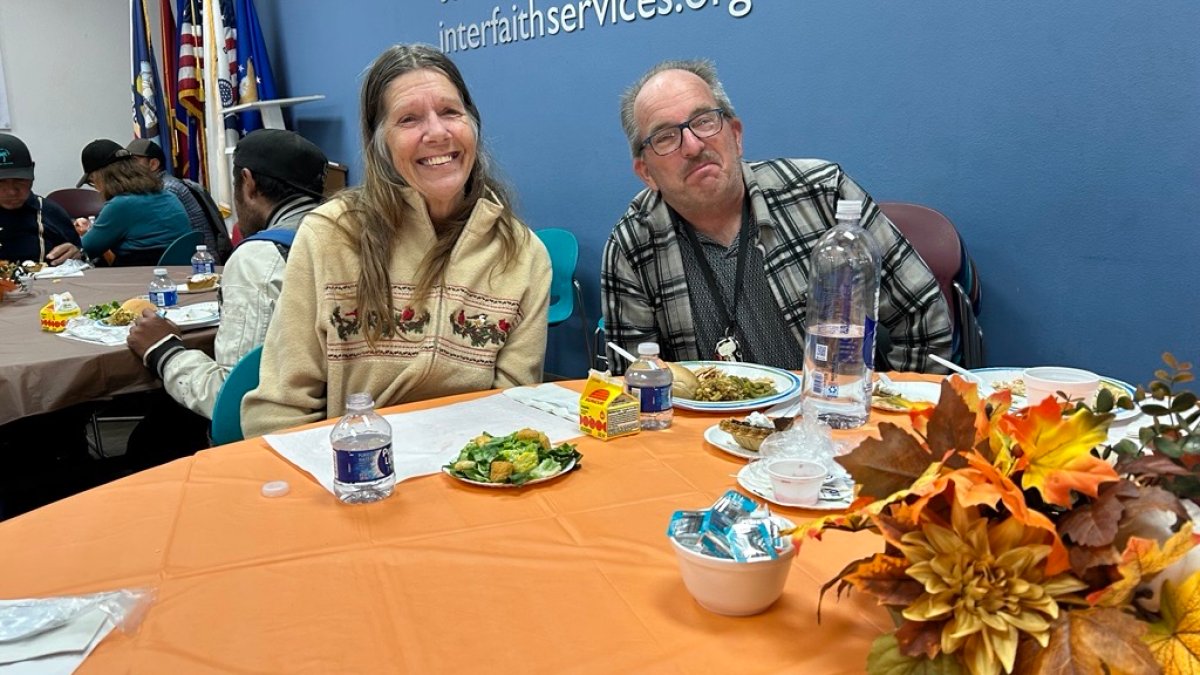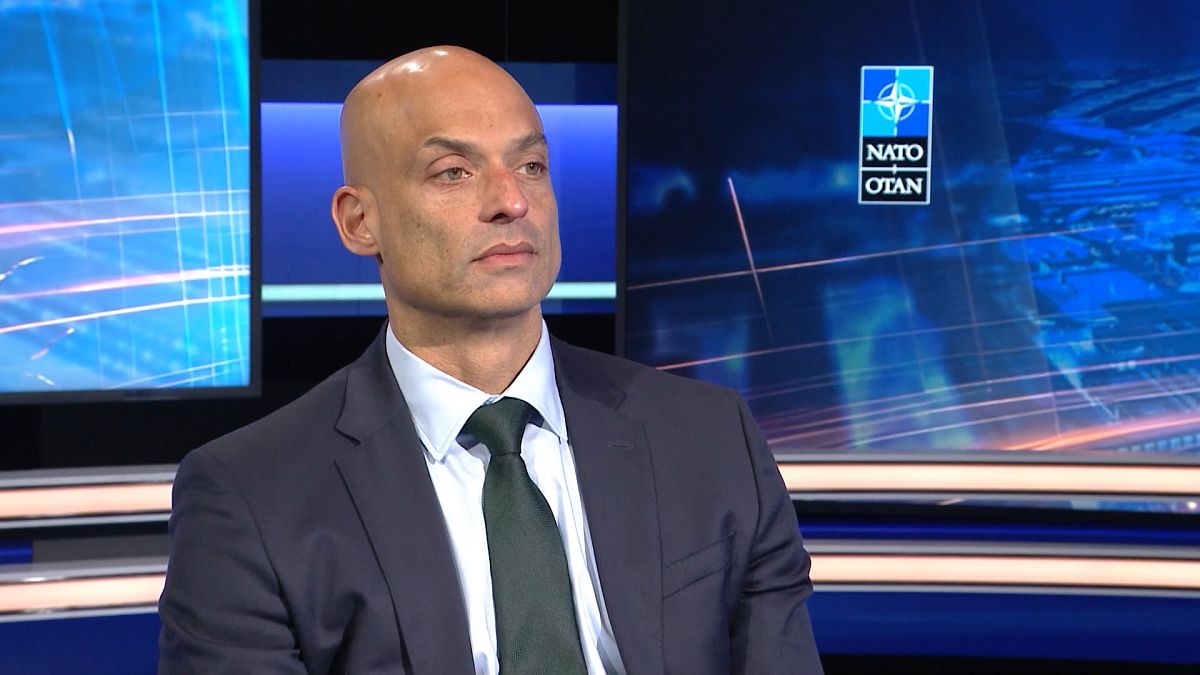Mississippi
Mississippi Democratic Party boss resigns ahead of removal vote
/cloudfront-us-east-1.images.arcpublishing.com/gray/U4IF4SGDGNDXPISSKRR6X5PGAQ.png)
Tyree Irving, the chairman of the Mississippi Democratic Party since 2020, resigned as dozens of the state party’s executive committee members appeared poised to remove him from his seat in a July 6 emergency meeting.
Irving’s resignation, effective July 22 but announced on Saturday, comes less than a week after Mississippi Today published emails that some party officials feared would jeopardize a $250,000 donation from the national party.
The emails, which included a nasty personal attack of the No. 2 leader of the state party and were sent to senior staffers of the Democratic National Committee, led the state party’s executive committee members to begin gathering signatures to call a special meeting next week. The purpose of the meeting, according to a form being circulated, was to “address the long standing and repeated actions of malfeasance and misfeasance of the Chair of the Mississippi Democratic Party.”
Dozens of signatures had been gathered as of the weekend — more than enough to both call the meeting and ultimately remove the chair, several sources on the state party’s executive committee shared with Mississippi Today.
Irving, who sent his resignation letter to some committee members on Saturday, was critical of the coverage of his actions.
“The past week has been very stressful for me, and especially my family, due to the circulation of false and misleading information impugning my name and reputation, while we are trying to plan for a successful election this year,” reads the resignation letter from Irving, first reported by SuperTalk Mississippi. “Regrettably, today I must inform you of my intent to resign as Chairman, effective at midnight, July 22, 2023.”
Emails published on June 26 showed that Irving sharply criticized Andre Wagner, the state party’s executive director and No. 2 leader of the party, in a note that was sent to three Democratic National Committee staffers. Shortly before Irving sent the email, the DNC officials had committed to sending the state party $250,000 to boost political programs and support candidates “up and down the ballot.”
READ MORE: Democrats fear state leader’s tirade will jeopardize $250K commitment from national party
Wagner had sought in an email to clarify Irving’s previous comments about how the state party should spend that $250,000 from the national party. Then Irving, a 77-year-old former Mississippi Court of Appeals judge who has been party chairman since 2020, insisted that he alone ran the state party and that Wagner was “out of order.”
“Mr. Wagner, you do not speak for the chair, and you are out of order,” Irving wrote. “I am an accomplished jurist. I know and understand things that you cannot know or understand because: you do not have the education level, you do not possess the personal or vicarious experience that I have, and you know nothing about the historical political landscape of Mississippi. You are not in a position to speak for the Mississippi Democratic Party or say how the Mississippi Democratic Party will spend any funds without being granted that authority to speak, and it has not been granted to you. You are a salaried employee and nothing else. You need to find your place and stay in it.”
Wagner, in response, forwarded the exchange to other state party leaders and predicted that the national party would pull its commitment to send the money to the state party. Several other Democratic Party officials told Mississippi Today they shared Wagner’s concern.
Irving, in an interview and follow-up messages with Mississippi Today, declined to respond to the content of his emails and whether he thought they may encourage the DNC to pull back on their commitment.
After the article published, several prominent Democrats publicly called for Irving’s removal from his post.
Shuwaski Young, the lone Democrat running for secretary of state this year, said the state Democratic Party’s executive committee should promptly remove Irving from his post.
“The chairman’s main job is to fundraise and to support candidates up and down the ticket,” Young said earlier this week. “When you have a chairman acting in this outrageous way, it makes people not want to invest into the party. It makes people not want to donate to candidates. And politically, it makes it harder for Democrats to win. When we can’t operate in a coordinated fashion because our leader can’t respect other people, it hurts every Democrat in the state. We have to be able to have our house in order, and that’s clearly not the case.”
Irving’s resignation comes at a critical time for Mississippi Democrats. Every statewide office, legislative seat and district attorney positions is on the ballot in November. And at the top of the ticket, Democrat Brandon Presley is challenging incumbent Republican Gov. Tate Reeves in a race many political observers have opined will be close.
On Thursday, before Irving announced his resignation, Presley attempted to distance himself from the Democratic Party drama.
“We’re running our own race, which, frankly and truthfully, doesn’t give me time to divert attention to things that seem to be internal matters within the party or party matters and are not my campaign matters,” Presley told Mississippi Today after speaking to Burning Bush Missionary Baptist Church in Grenada.
Democrats in recent years have been dominated by Republicans at every level of politics in the state. In election years, the party chair often guides political strategy and programming in addition to fundraising.
The executive committee is expected to meet in coming days to select a new chair of the party, who will lead the party’s efforts to support its candidates in the major election year. The new chair must currently serve on the state’s 80-member executive committee and must secure a majority vote of the committee.
READ MORE: Statewide candidate calls for ouster of Mississippi Democratic Party chairman
This article first appeared on Mississippi Today and is republished here under a Creative Commons license.

Mississippi
Earthquake strikes Jackson, MS area on Thanksgiving Day. See the details

VIDEO: Students practice earthquake drill for Great Oregon ShakeOut
Spencer Butte Middle School students participate in the Great Oregon ShakeOut, learning about earthquakes and what to do if one occurs.
A 2.5 magnitude earthquake struck near the Ross Barnett Reservoir on Thanksgiving Day, the United States Geological Survey confirmed.
The minor-earthquake struck around 12 kilometers southeast of Canton at a depth of 5 kilometers. It happened around 7:48 a.m. No damage was reported.
The quake was recorded on the north side of the of the reservoir near where Highway 43 crosses the lake and south of the Natchez Trace Parkway.
Earthquakes have occurred in the region before.
“Until 2014, when the dramatic increase in earthquake rates gave Oklahoma the number one ranking in the conterminous U.S., the most seismically active area east of the Rocky Mountains was in the Mississippi Valley area known as the New Madrid seismic zone,” according to the USGS website.
In the winter of 1811 and 1812, according to the USGS, the New Madrid seismic zone “generated a sequence of earthquakes that lasted for several months and included three very large earthquakes estimated to be between magnitude 7 and 8. The three largest 1811-1812 earthquakes destroyed several settlements along the Mississippi River, caused minor structural damage as far away as Cincinnati, Ohio, and St. Louis, Missouri, and were felt as far away as Hartford, Connecticut, Charleston, South Carolina, and New Orleans, Louisiana.”
A 2.6 magnitude earthquake also struck in Oklahoma on Thanksgiving Day.
Mississippi
Minor earthquake recorded in Mississippi on Thanksgiving

MADISON COUNTY, Miss. (WJTV) – A minor earthquake was recorded in Mississippi early Thanksgiving morning.
According to the United States Geological Survey (USGS), the 2.5-magnitude earthquake occurred southeast of Canton near the Ross Barnett Reservoir around 1:48 a.m. on Thursday, November 28.
Officials with the Michigan Technological University said earthquakes below 2.5-magnitude are “generally not felt.” So far, there are no reports of any damage in Madison County.
The last earthquake that occurred in Madison County was a 2.8-magnitude earthquake in 2019.
Mississippi
Thanksgiving on Mississippi Public Broadcasting Think Radio, set to air on Thursday, November 28th

MISSISSIPPI (KTVE/KARD) — For Thanksgiving, on Thursday, November 28, 2024, the Mississippi Public Broadcasting Radio will air a special programming.
Photo courtesy of Mississippi Public Broadcasting
According to officials, “Turkey Confidential” and “Feasting with the Great American Songbook: An Afterglow Thanksgiving Special” will run from 9 a.m. to 1 p.m. Francis Lam will be taking calls and help those in need of Thanksgiving cooking tips for the biggest cooking day of the year.
According to officals, “Feasting with the Great American Songbook: An Afterglow Thanksgiving Special” will explore classic jazz and popular songs about food by singers like Louis Armstrong, Louis Jordan, and Fats Waller, perfect for listening while sitting at the table.
-

 Science1 week ago
Science1 week agoTrump nominates Dr. Oz to head Medicare and Medicaid and help take on 'illness industrial complex'
-

 Health6 days ago
Health6 days agoHoliday gatherings can lead to stress eating: Try these 5 tips to control it
-

 Health3 days ago
Health3 days agoCheekyMD Offers Needle-Free GLP-1s | Woman's World
-

 Science3 days ago
Science3 days agoDespite warnings from bird flu experts, it's business as usual in California dairy country
-

 Technology2 days ago
Technology2 days agoLost access? Here’s how to reclaim your Facebook account
-

 Science1 week ago
Science1 week agoAlameda County child believed to be latest case of bird flu; source unknown
-

 Sports1 week ago
Sports1 week agoBehind Comcast's big TV deal: a bleak picture for once mighty cable industry
-

 Entertainment22 hours ago
Entertainment22 hours agoReview: A tense household becomes a metaphor for Iran's divisions in 'The Seed of the Sacred Fig'















